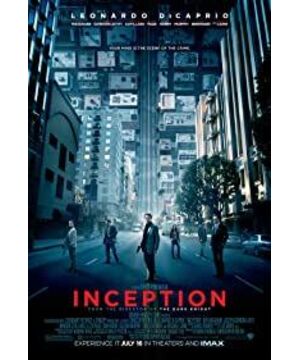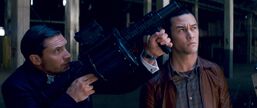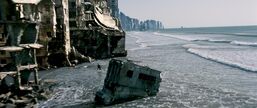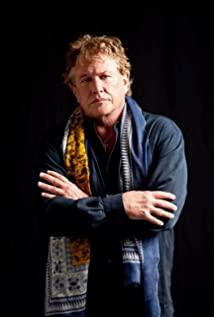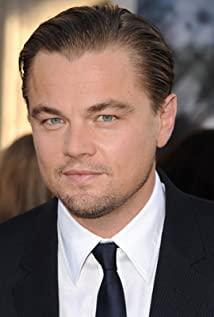Common main tasks of commercial blockbusters include anti-terrorism and war, nuclear smuggling, punishment of dictators, anti-narcotics, counterfeit banknotes, rescue of hostages, capture of ghosts, civil rights protection or personal revenge, and so on. And once the history and reality metaphors of its main mission are done well, beyond the above-mentioned proliferation of themes, it is easy to get praise in both business and art (such as family relations and women's issues in "True Lies"). In fact, there are really few such works in commercial blockbusters. However, those self-destructive movies with superb skills to complete the task, and the task itself is very mentally handicapped, are really too numerous to list (such as "Mission: Mission Impossible 3").
Therefore, Christopher Nolan conceived a wonderful task completion technique in Inception, which took eight years of meticulous screenwriting: "Inception" (stealing ideas and implanting ideas). In order to prevent "foot-heavy", you must Design a major task that is "worthy of" such a technique of "invigorating the teacher and moving the crowd". The answer Nolan handed over was the anti-monopoly of the oil industry.
1. Why does "Inception" take "oil industry anti-monopoly" as its main task?
The subject of "Anti-Monopoly in the Petroleum Industry" is considered qualified from a novel perspective. Previously focused on the oil industry, there was a biographical literary film: Paul Thomas Anderson's "There Will Be Blood" (There Will Be Blood 2007), which has almost reached the extreme of historical anatomy of the oil industry. However, movies that directly use antitrust as the subject, such as "Antitrust Action" (AntiTrust 2001), are basically a small slapstick, and most of the other documentaries involve antitrust issues, such as "Deconstruction of Enterprises" (The Corporation 2004), "Food, Inc. 2008" and so on. "Inception" can be regarded as the first commercial blockbuster that takes the technological and strategic break-up and splitting of oil monopolies as the main task.
In fact, there are many innovative main tasks that can be designed. Why did Christopher Nolan choose the anti-monopoly of the oil industry alone? We might as well make some bold analysis or speculation:
Reason 1: Anti-monopoly is a continuation of the idea of "resisting the enslavement of power and the alienation of rebellious reality". This idea can easily win the favor of the middle and lower audiences in American society, as well as the leftists in American politics, especially the more radical young people. Its typical masterpiece is "Fight Club" (Fight Club 1999). This idea will also gain the recognition of audiences in third world countries in global distribution, especially when multinational companies in developed countries are enslaving them through various monopolies. This theme can undoubtedly help poor countries to vent their grievances.
Reason 2: After the subprime mortgage crisis in the United States, the poor who borrowed a lot of money to buy houses were forced to lose their real estate. The people generally harbored hatred of the rich, and the voices against economic plunder were rising. Its representative film work is "Capitalism: A Love Story" (Capitalism: A Love Story 2009) by Michael Moore. The Obama administration’s policy of accountability to financial oligarchs and high-income CEOs is in a difficult situation. Accompanied by the financial crisis, it was the monopoly of oil companies and the speculation of financial speculators under the conditions of a falling U.S. dollar, which caused the oil price to soar from US$20 per barrel at the time of the September 11 incident in 2001 to nearly US$150 in July 2008. The highest price, and then the rise in industrial costs, serious unemployment, inflation, and a large number of low-income people are living in distress. Questioning that the Iraq War was a conspiracy between the Bush administration and oil companies was even more explicit in "Fahrenheit 9/11" (2004). It is against this background that Obama announced in March 2010 that he would lift the ban on the development of offshore oil and gas fields in the United States, while continuing to implement environmentally friendly new energy policies to ensure energy security. The "anti-oil monopoly" theme of "Inception" is undoubtedly the right choice.
Reason 3: Multi-level analysis and philosophical thinking of the human spirit is the consistent theme of Christopher Nolan's works. The decent and villain characters are often not facialized, but tangled and contradictory, whether it is Bill and Booker in "Following" 1998, Shelby in "Memento" 2000, or the Joker in "The Dark Knight" 2008. Still cobb and Fischer in Inception. Similarly, in the review and litigation of various antitrust cases in the United States, there are also schools and opinions that support monopolists, because monopolists often obtain monopoly positions through continuous hard work and entrepreneurship in fierce market competition. His wealth and economic power are precisely the symbol of the "American spirit." Because of this, Inception was able to avoid portraying Maurice Fischer, who will monopolize the global oil industry, and his heir Robert Fischer as masked villains. The multi-layered personality of their personality is constantly being glimpsed in the process of Inception. One spot: hard work, perseverance, harshness, loyalty, faith, loneliness, doubt, emotional depression, communication barriers, strong and fragile...
Who is this pair of father and son metaphors? Is there a realistic prototype for their monopoly oil empire? Is there any real historical facts about the case of the cessation of this monopolistic enterprise?
2. Who may be the historical reality prototype of Fischer and his son in Inception?
The prototype of the dying Maurice Fischer in "Inception" should be the American oil king, the richest man in the history of the United States (worth $300 billion), the incarnation of the "American spirit", and the creator of the American "Trust"-John .D. Rockefeller (1839-1937). The prototype of the heir Robert Fischer in Inception is the heirs of the Rockefeller family, mainly John D. Rockefeller (1874-1960), the fourth son of Old Rockefeller, and Lawrence Rockefeller (1910-), the fourth son of Rockefeller. 2004).
First of all, as the creator of the American "Trust", Old Rockefeller reused the loopholes in the trust system by a lawyer named Dodd. In 1882, he passed 700,000 trust certificates to expand his standard oil company to become the world's number one at the end of the 19th century. The company "Mobil Oil Company" monopolizes 95% of U.S. oil and 75% of global oil. In 1890, the US House of Representatives passed the Sherman Antitrust Act. On May 15, 1911, the U.S. Supreme Court ruled in the Standard Oil vs. US (1911) "Mobil Oil Company" case that according to Articles 1 and 2 of the Sherman Act, Mobil Oil Company is a monopoly. , And was split into about 37 regional oil companies. This is the first time in the history of American antitrust to break up companies through structural amendments. Since then, famous cases include the decomposition review of IBM in 1969, and the decomposition of American Bell Communications into AT&T and 7 regional communications companies in 1984, etc. .
Second, the Rockefeller family still controls all aspects of the U.S. petroleum industry and even the U.S. economy. Today, 8 of the 16 largest oil companies in the United States belong to the Rockefeller consortium, including Exxon America’s Captive Oil Company (Amocco, which merged with Mobil in 1999); Chevron Petroleum Company (Chevron, 2001) Merged with Texaco and acquired part of Gulf Gulf's assets). Among the five largest oil companies in the world, the Rockefeller consortium occupies two. In addition, the Rockefeller Consortium is also the largest original shareholder of General Motors. The companies founded or invested in it include Chase Bank (now JP Morgan Chase in 1930), International Harvester Company, Union Pacific Railway Group, Eastern Airlines (1938), McDonnell Douglas Airlines (1939), Apple Computer, Intel Group, insurance, automobiles, iron ore, coal mines and other important industry sectors and enterprises.
Again, very similar to the plot of the heir in Inception, the Rockefeller family gradually changed the trajectory of hostile economic hegemony and embarked on a path of charity, leisure and alternative life. In 1896, the 57-year-old Rockefeller retired and moved into his own manor. After nearly 40 years of life, he devoted himself to charity: In 1900, he funded 80 million US dollars to the University of Chicago, and in 1901, he donated 200,000 dollars to establish Rockefeller Medical Research. So, the "Rockefeller Foundation" was established in 1913, and the Museum of Modern Art (MoMA) was completed in 1929. He lives in Florida, eats vegetarian meals, learns to play golf, goes to the theater to watch comedies, chats with neighbors, and learns to live an uncontested ordinary life. The second-generation heir of the Rockefeller family, John D. Rockefeller Jr., is very similar to Robert Fischer. He wandered between business and philanthropy and often suffered from mental disorders. On the one hand, he built the Rockefeller Center in New York and completed it. The merger of Chase Bank, but at the same time a famous environmental protection and cultural relic protection philanthropist. The third-generation heir Lawrence Rockefeller is a famous national park donor, the famous Tallman Mountain National Park, Jackson Hole Estate, Grand Teton National Park, Virginia National Park, California Redwood National Park Project, Caneel Bay Rock Resort Center, etc. He has made credit for it. In the fourth and fifth generations of the Rockefeller family members, 150 direct descendants are more personalized and incognito, but they have been surprisingly united in recent years in Exxon’s oil exploration projects and unanimously advocated the implementation of environmental protection plans.
Finally, Christopher Nolan, the director of "Inception", was born in architecture. As mentioned above, the Rockefeller family left behind a large number of classic architectural design cases and materials for the United States. It is located in the famous "Rockefeller" The "center" building complex has been regarded as a symbol of capitalist ideology by many art masters and scholars. In addition, the Rockefeller Manor in the small town of Sleep Hollow in northern New York is also a famous architectural landscape.
3. What is the meaning of "Inception" to the oil king?
The initiator of the "Inception" mission in the film is Saito, a Japanese oil company. He claims to be the only one who can check and balance the Fischer oil empire, but he can't hold on for long. Noting that in the 1990s, the economies of Japan and Southeast Asia were successively collapsed by the speculative hype of the American financial giants. The role design of this Asian boss behind the scenes seems reasonable. Then, the "dream team" formed by cobb and Arthur also joined the pharmacist Yusuf (Biblical Arabic) and the pretender Eames from Mombasa, Kenya, Africa, and the French designer Ariadne (the Greek mythological name), while the old Fischer died. Australia, Cobb and Mal (Spanish) are home in the United States. Filming locations of the film also include Canada, the United Kingdom, Morocco and other places.
Obviously, the idea of "the proletarians of the world unite" is very obvious here, but what are they doing together? Not a revolution, but an "inception". Some people say that it would be easier to take so many things to change an heir’s mind than to kill him directly on the plane... The latter view is a revolution. The reason why the director insists on "implanting the spirit" instead of "eliminating the body" is to convey an alternative route through the film-to transform the source of the alienated spirit so that it can be restored to normal in the continuous gap of the testicles. The human mind makes the predators and those who are not benevolent "rich for three generations," allowing them to voluntarily clear zero between generations. In this way, it will not undermine the constitutional spirit of "industriousness to get rich", and will not plant another evil result of "equalizing the rich and the poor, beating, smashing and looting" the rogue proletariat.
The true meaning of this "Inception" is actually "reporting grievances directly" and "communication and negotiation". It is hoped that one day the rich will wake up and find that their conscience will become "Confucian businessmen" and "benevolent wealth." This may be just a idiotic dream "Daydream". However, whether the Rockefeller and Bill Gates foundations are for tax avoidance or for charity, if we all have the courage and patience, perhaps we can really use the methods of Gandhi and Martin Luther King to give the giant a shot. Let him walk into Alice’s dream...
Blog link http://blog.sina.com.cn/s/blog_53b4433c0100kfau.html
View more about Inception reviews


